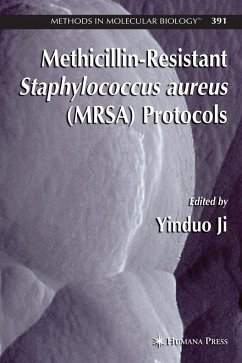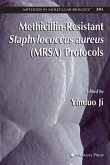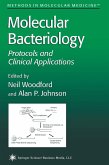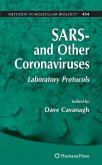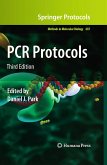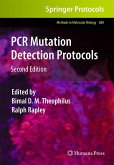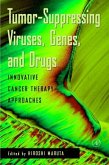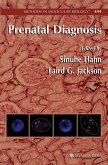MRSA Protocols for Methods in Molecular Biology provides a comprehensive collection of the most up-to-date techniques for the detection and investigation of MRSA. Each chapter begins with a brief introduction to the method and purpose and then goes into detailed protocols for every step of analysis. Several chapters also include a section with tips on individual steps not usually found in methods books. These tips may represent the difference between immediate success and lengthy troubleshooting.
Among the topics discussed in this volume are Staphylococcus aureus infections, MIC analysis, ITS-PCR identification, SCCmec analysis, and Biofilm formation. The book also contains helpful case studies, and authors provide insights into the control, prevention, and treatment of infections.
Oriented towards routine clinical diagnosis, research, and actual practice for treatment of patients infected by MRSA, MRSA Protocols for Methods in Molecular Biology will make a useful basis for anyone interested in instituting a new method for studying MRSA.
Among the topics discussed in this volume are Staphylococcus aureus infections, MIC analysis, ITS-PCR identification, SCCmec analysis, and Biofilm formation. The book also contains helpful case studies, and authors provide insights into the control, prevention, and treatment of infections.
Oriented towards routine clinical diagnosis, research, and actual practice for treatment of patients infected by MRSA, MRSA Protocols for Methods in Molecular Biology will make a useful basis for anyone interested in instituting a new method for studying MRSA.
From the reviews:
"This book ... has a unique format focussing on detailed experimental protocols. This is particularly useful if you are trying a technique for the first time, troubleshooting a method, or wishing to understand how a technique works in order to critique its use in the literature. ... there is much to recommend in this book, particularly those who are new to the field and want an introduction to techniques in both basic biology and clinical aspects of MRSA." (Jodi Lindsay, Microbiology Today, May, 2008)
"The book is devoted to the multiple laboratory techniques available for technicians and basic scientists. ... a good field manual, and clinicians will have an easy to read book on these techniques. ... describes well the laboratory techniques available for the study of MRSA. ... Most chapters have illustrations in black and white, which are helpful in the overall discussion, and all chapters have a bibliographic list. ... it is a good starting point for clinicians and novice scientists in the world of MRSA infections." (Carlos Ernesto Figueroa Castro, Doody's Review Service, May, 2008)
"A unique compilation of 17 chapters aimed chiefly at the scientific investigation of MRSA ... . This book may also serve as a classic methods reference for those geared towards studying MRSA ... . In summary, this book represents an excellent reference manual of protocols used to study MRSA, with concise, clear, and well-written introductory sections that can be useful for laboratory investigators and clinicians wishing to get a better understanding of the theory behind scientific methods. ... is timely in its arrival." (George Sakoulas, Clinical Infectious Diseases, Vol. 46, May, 2008)
"This book ... has a unique format focussing on detailed experimental protocols. This is particularly useful if you are trying a technique for the first time, troubleshooting a method, or wishing to understand how a technique works in order to critique its use in the literature. ... there is much to recommend in this book, particularly those who are new to the field and want an introduction to techniques in both basic biology and clinical aspects of MRSA." (Jodi Lindsay, Microbiology Today, May, 2008)
"The book is devoted to the multiple laboratory techniques available for technicians and basic scientists. ... a good field manual, and clinicians will have an easy to read book on these techniques. ... describes well the laboratory techniques available for the study of MRSA. ... Most chapters have illustrations in black and white, which are helpful in the overall discussion, and all chapters have a bibliographic list. ... it is a good starting point for clinicians and novice scientists in the world of MRSA infections." (Carlos Ernesto Figueroa Castro, Doody's Review Service, May, 2008)
"A unique compilation of 17 chapters aimed chiefly at the scientific investigation of MRSA ... . This book may also serve as a classic methods reference for those geared towards studying MRSA ... . In summary, this book represents an excellent reference manual of protocols used to study MRSA, with concise, clear, and well-written introductory sections that can be useful for laboratory investigators and clinicians wishing to get a better understanding of the theory behind scientific methods. ... is timely in its arrival." (George Sakoulas, Clinical Infectious Diseases, Vol. 46, May, 2008)

